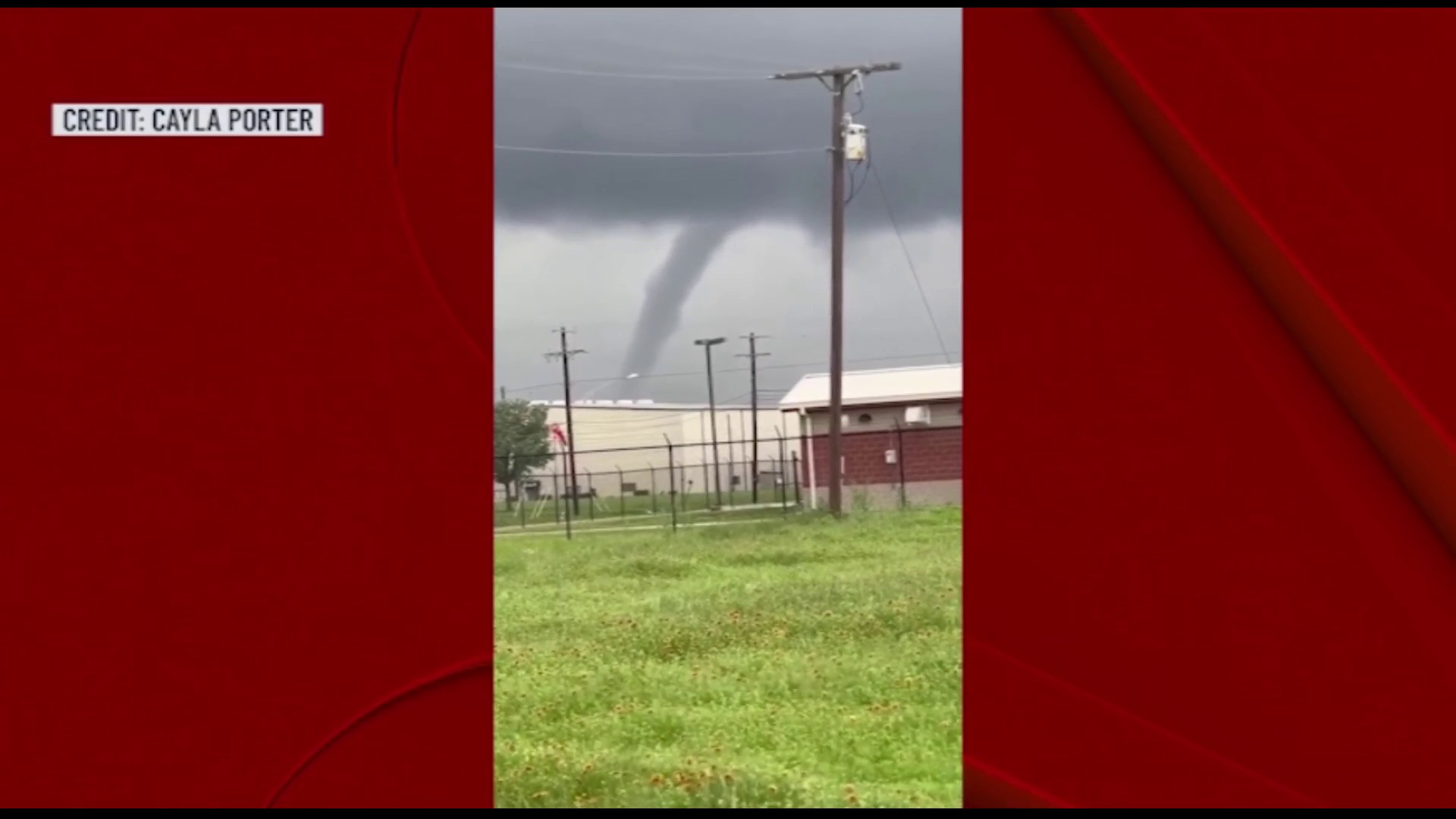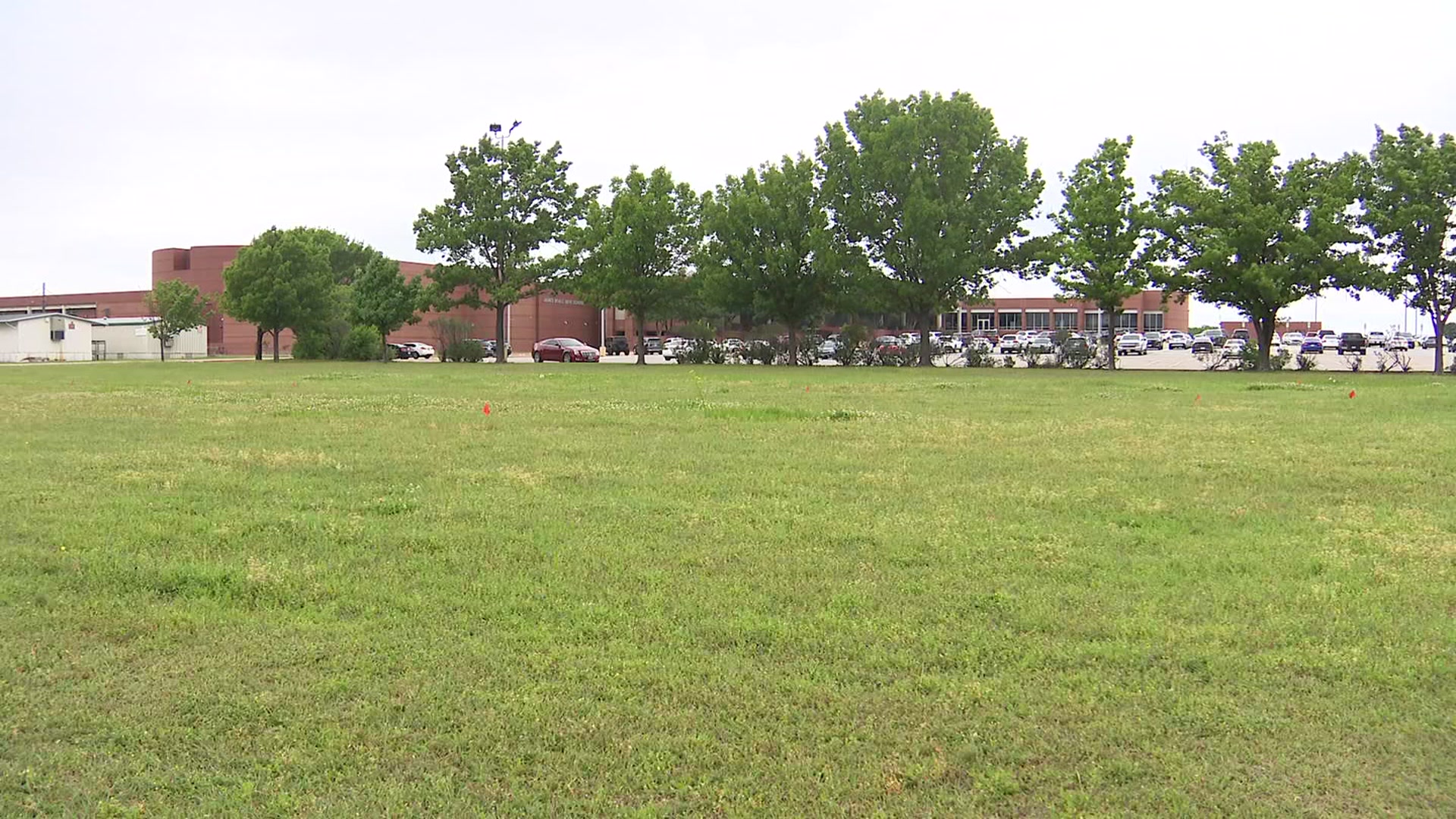Ted Cruz says the question follows him into the hallways of foreign capitals around the world. In whispered tones, heads of state pull the Texas senator and Republican candidate for president aside to ask: "Where is America?"
"We need America," Cruz says they tell him. "The world doesn't work without America leading."
And so if he's elected president next November, Cruz vows a dramatic shift in how America engages with the world. With fiery rhetoric befitting his hero status within the tea party movement, he condemns the foreign policy of President Barack Obama and his first secretary of state, Democratic front-runner Hillary Clinton, as weak, ineffective and dangerous.
Yet while promising to destroy the Islamic State, beat back aggression from Russia, China and Iran, and ensure extremists don't infiltrate the U.S. homeland, Cruz also places notable limits on his approach to national security.
Cruz spoke with The Associated Press to share his views on national security and foreign affairs in an AP Conversation -- a series of extended interviews with the candidates to become the nation's 45th president.
While Syrian president Bashar Assad is undoubtedly a "bad man," removing him from power would be "materially worse for U.S. national security interests." He is unwilling to send more U.S. ground forces into the Middle East and rejects the idea that torture can serve as an appropriate interrogation tool.
"We can defend our nation and be strong and uphold our values," he says. "There is a reason the bad guys engage in torture. ISIS engages in torture. Iran engages in torture. America does not need to torture to protect ourselves."
Local
The latest news from around North Texas.
The 44-year-old first-term senator, trying to cement his place in the top tier of Republicans running for president, outlines a prospective foreign policy that is both broadly ambitious and cautious at times in the specifics.
In an election increasingly focused on national security in the wake of the Paris attacks, however, Cruz says he has one goal above all others heading into 2016.
"The pre-eminent job of the commander-in-chief is to keep this country safe," he says. "It is the first responsibility."
Cruz says he would keep things "very simple" in taking on the Islamic State, the group of violent Islamic extremists who have taken control of parts of Syria and Iraq.
"We win and they lose. And if I'm elected president, I will make unambiguously clear that we will destroy ISIS -- not weaken it, not degrade it, but utterly destroy it," he says, using one of the several acronyms for the group.
While Cruz's goals are definitive, he is unwilling to go as far as several other Republican presidential contenders -- among them, retired neurosurgeon Ben Carson and former Florida Gov. Jeb Bush -- who have said the battle against the Islamic State must include a U.S. force on the ground.
Cruz lashed out against plans released by the Obama administration on Tuesday to deploy a new special operations force to the region, a move that puts U.S. combat troops in a more permanent role in Iraq and Syria for the first time in the fight against the Islamic State.
He argues for a vast intensification of the Obama administration's existing air campaign, citing the "saturation bombing" of the first Gulf War in Iraq.
"You may need some embedded special forces to direct that air power," Cruz says, "but not the way President Obama is doing it now, which his just sending our guys over there with no mission, no plan to win."
As a second step, Cruz argues for directly arming the ethnic Kurds who are fighting Islamic State forces. "In a very real sense, the Kurds are our troops on the ground," he says.
Pressed on what circumstances he may dispatch a more substantial U.S. ground force, Cruz demurs, saying only that such scenarios exist in situations affecting "vital U.S. national security interests."
While conceding that Assad has "murdered hundreds of thousands of his own citizens" in Syria, Cruz is also a harsh critic of the Obama administration's desire to remove him from power.
He notes with an eye toward the upcoming Republican primaries that Florida Sen. Marco Rubio, a presidential rival, also thinks Assad must go. The Middle East and the United States are better off with Assad in place, Cruz says.
"If President Obama and Hillary Clinton and Sen. Rubio succeed in toppling Assad, the result will be the radical Islamic terrorist will take over Syria, that Syria will be controlled by ISIS, and that is materially worse for U.S. national security interests," he says.
He doesn't stop there. In another example of the limits he would follow as president, Cruz argues the U.S. should not have supported the ouster of former Iraqi President Saddam Hussein, former Egyptian President Hosni Mubarak and former Libyan leader Moammar Gadhafi.
"If you topple a stable ruler, throw a Middle Eastern country into chaos and hand it over to radical Islamic terrorists, that hurts America," he said.



